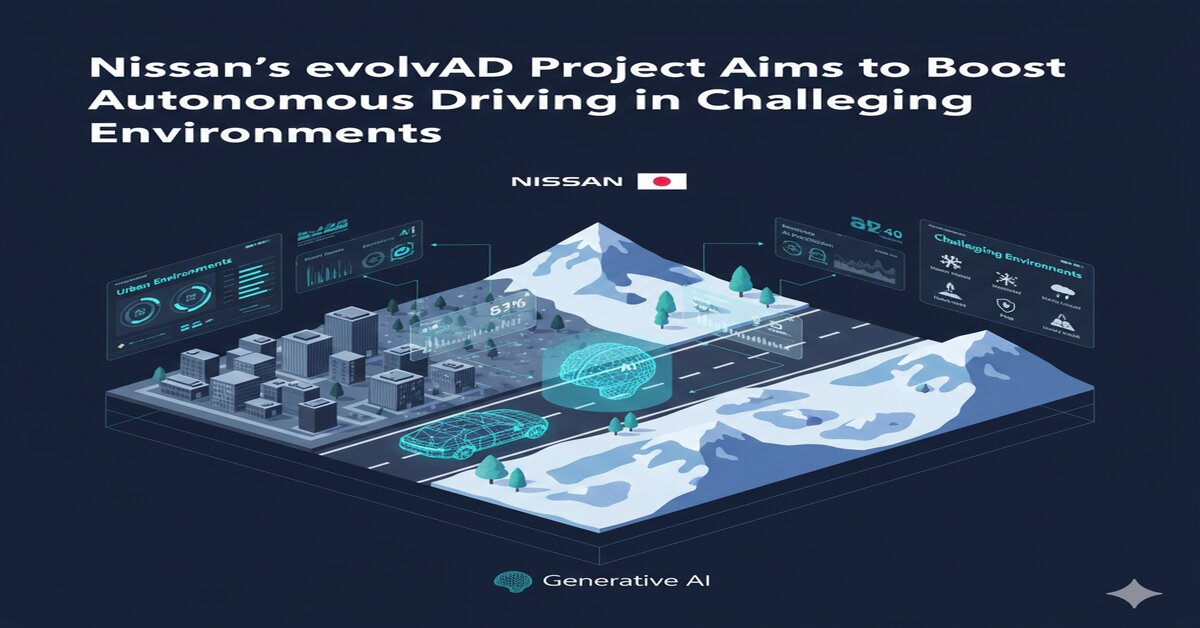Nissan is at the forefront of advancing autonomous driving technologies in the UK through its pivotal role in the government-funded project, evolvAD. Launched in September as part of Nissan’s Ambition 2030 vision, this initiative aims to boost the autonomous driving sector by testing and enhancing fully electric Nissan Leafs equipped with cutting-edge AD (autonomous driving) technology.
The evolvAD project, managed by Robert Bateman, the project manager and manager of the research and advanced engineering team at Nissan Technical Centre Europe (NTCE), focuses on exploring the capabilities of AD technology in challenging driving environments, specifically urban residential areas and complex rural roads. These areas present unique challenges, including narrow roads, parked vehicles, slow driving speeds, blind corners, and winding profiles.
Collaborating with a consortium of industry partners, including Connected Places Catapult (CPC), Humanising Autonomy, SBD Automotive, and TRL, Nissan is set to delve into the complexities of urban and rural driving scenarios. The 21-month research project, scheduled to conclude in March 2025, receives joint funding from the government and consortium partners, with support from the Intelligent Mobility Fund.
The project utilizes a fleet of fully electric Nissan Leafs, equipped with an array of sensors, including cameras, lidar, GPS, and radar. These vehicles are designed to navigate diverse challenges, from speed bumps and traffic signals to one-way systems and pedestrian crossings, on both urban and rural roads. The goal is to develop AD technology capable of handling everyday driving scenarios comfortably and assertively.
Key to the project is the exploration of V2I (vehicle-to-infrastructure) technologies, enhancing situational awareness and overall performance. TRL, managing the Smart Mobility Living Lab (SMLL), integrates infrastructure elements with test vehicles to provide crucial data for improving AD systems. The testbed spans London roads in Greenwich and the Queen Elizabeth Olympic Park, featuring 24km of instrumented public urban roads.
Humanising Autonomy contributes by developing ethical computer-vision software that analyzes and predicts human behavior, crucial for predicting and understanding pedestrian actions in complex environments. The project acknowledges the need for AD systems to emulate human-like responses, ensuring a comfortable and assertive driving experience.
Urban residential road testing is conducted in partnership with TRL on SMLL’s real-world testbed, incorporating diverse road features like speed bumps, traffic signals, pedestrian crossings, and more. Rural testing initially takes place at proving grounds within the UK, including UTAC Millbrook and Mira, focusing on high-speed scenarios, blind corners, and road gradients.
Safety is paramount throughout the project, with test vehicles equipped with safety drivers responsible for overseeing vehicle operations. The safety drivers, trained to react to system failures, ensure a smooth transition from simulation to real-world testing. The project aims to minimize safety driver interventions, with a long-term goal of achieving fully autonomous operation.
The evolvAD project reflects Nissan’s commitment to making AD technology accessible in various driving environments. The findings will contribute to the development of future AD systems, ensuring seamless integration into urban landscapes. While evolvAD features vehicles with 100% autonomous drive capability, Nissan emphasizes that it does not signal an immediate launch of fully autonomous vehicles in the UK and Europe.
In summary, Nissan’s evolvAD project signifies a significant step forward in advancing AD technology, addressing the complexities of urban and rural driving scenarios. With a focus on safety, infrastructure integration, and human-like driving behavior, this initiative plays a vital role in shaping the future of autonomous vehicles.







